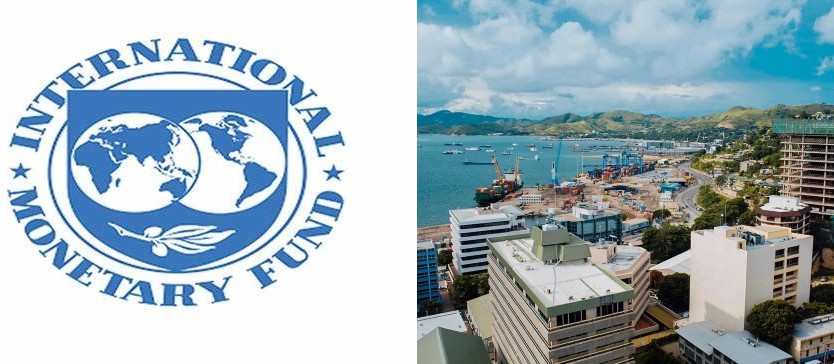The latest report from the International Monetary Fund (IMF) has painted a very good picture of Papua New Guinea’s (PNG’s) economic growth, attributing it to sound economic policies and measures taken by the government.
In an IMF article from that report published on Tuesday 8th of April 2025, it stated that PNG’s economic growth is projected to increase to 4.7 percent in 2025 with the outlook remaining broadly positive.
It went on to say that continued fiscal consolidation would help to reduce debt risks, while a tighter monetary policy stance would reduce foreign exchange pressures, support the crawl-like FX arrangement, and keep inflation low.
This positive outlook report came about following PNG authorities and the IMF team reaching staff-level agreement recently on the policies needed to complete the fourth reviews under the Extended Credit Facility (ECF) and Extended Fund Facility (EFF) and the first review under the Resilience and Sustainability Facility (RSF).
The IMF staff welcomed the PNG authorities’ progress in implementing their homegrown economic reform agenda, which continues to bear fruit, according to the report.
Meanwhile, the IMF team led by Mr. Nir Klein, mission chief for PNG, visited Port Moresby from March 27 to April 9, 2025, to review progress under the PNG authorities’ homegrown economic reforms supported by the ECF, EFF, and the RSF arrangements and discussed economic and financial policies in the context of the 2025 Article IV consultation.
The Article IV policy consultation focused on policies to preserve fiscal space for development spending while re-building buffers against shocks, modernize monetary policy frameworks and restore kina convertibility, strengthen governance frameworks, enhance competitiveness, and build resilience to climate change.
At the conclusion of the mission, Mr. Klein issued the following statement:
“I am pleased to announce that IMF staff and the Papua New Guinea (PNG) authorities have reached a staff-level agreement on policies needed to complete the fourth reviews of the ECF and EFF arrangements and first review of the RSF arrangement.”
The completion of these reviews would allow for the immediate disbursement of approximately US$161 million in financing under the ECF-EFF arrangements and approximately US$26 million in financing under the RSF arrangement. This would bring the total IMF financial support disbursed thus far to about US$616 million for PNG.
“Despite a challenging environment, Papua New Guinea’s performance under the IMF-supported program over the past two years has been strong. The authorities have sharply reduced the fiscal deficit and adopted important amendments to the Income Tax Act—a major milestone in the simplification of tax policies; introduced critical governance enhancements to the central bank and strengthened its operations, leading to improved access to foreign exchange and mopping of excess liquidity; and supported the operationalization of the anti-corruption framework.
“Papua New Guinea’s economic outlook remains positive. Growth is expected to increase to 4.7 percent in 2025 from an estimated 3.8 percent in 2024, supported by the gradual resumption of activities at the Porgera gold mine and improvements in access to foreign exchange,” said Mr. Klein.
He added that average headline inflation, which is largely affected by the betel nut price volatility, is projected to increase to 4.8 percent in 2025, after declining to a historic low of 0.6 percent in 2024; core inflation, which excludes betel nut and other volatile items, is projected to move up to 4.0 percent in 2025, staying below the historical average.
Gross international reserves remained adequate at US$3.7 billion at end-December 2024 (equivalent to about five months of imports of goods and services), providing ample space to continue supporting the crawl-like arrangement.
However, he did say, “The authorities should address the remaining gaps in the anti-money laundering and countering the financing of terrorism (AML/CFT) regime and further strengthen governance frameworks. Allocating sufficient budget resources to the Independent Commission Against Corruption (ICAC) remains critical to ensure its full and effective operationalization.”
On climate change mitigation, he simply said that to address longer-term challenges from climate change, the authorities should continue strengthening disaster risk management, integrating climate considerations in infrastructure governance, enabling climate finance, and setting up fiscal incentives for forest protection and energy efficiency, in line with their international climate commitments and supported by the RSF arrangement.
“The IMF will continue to work closely with the Papua New Guinea authorities and stands ready to help them, not only through financing and policy advice, but also through technical assistance, coordinated with other development partners,” he said.

